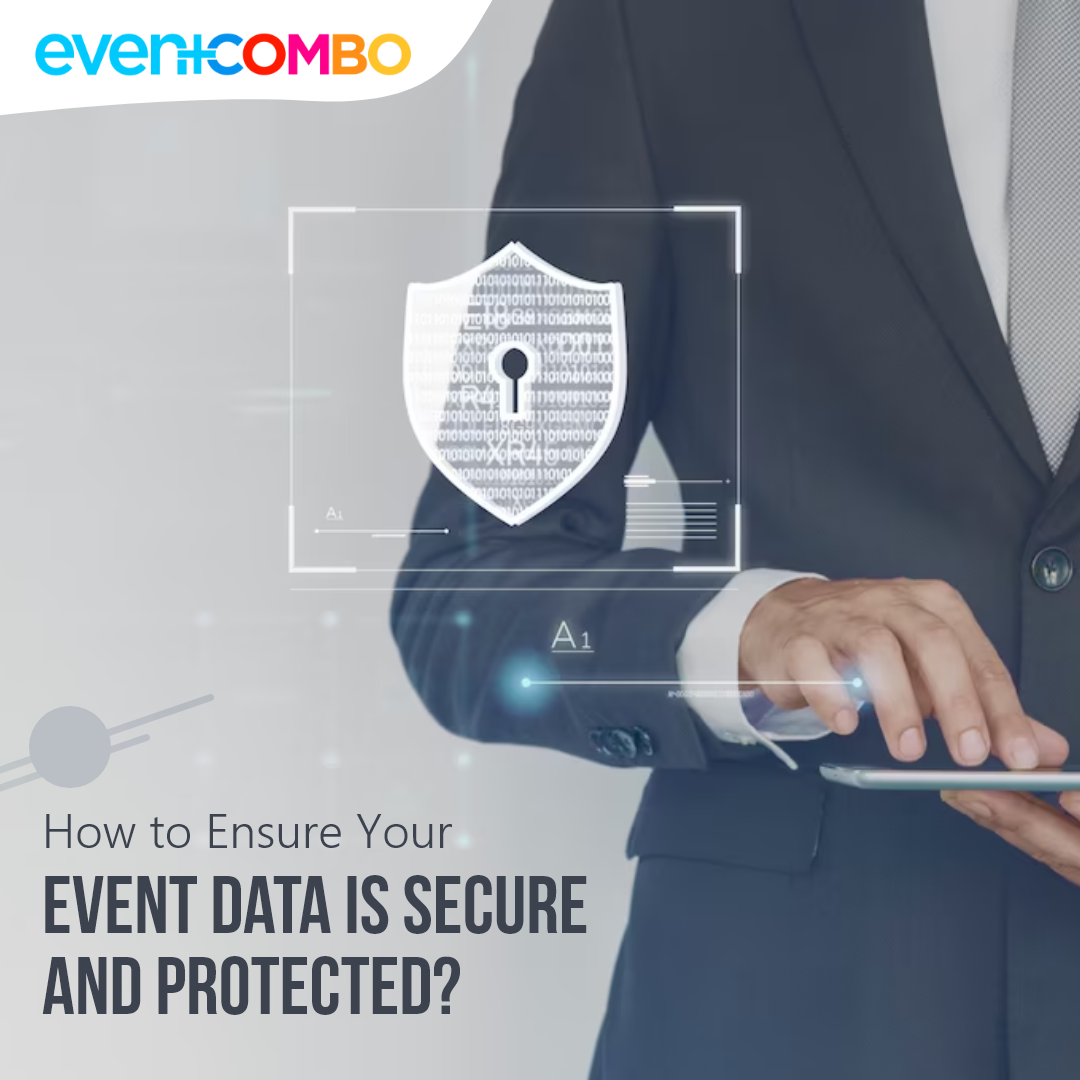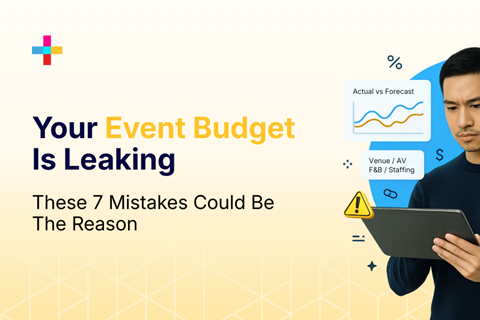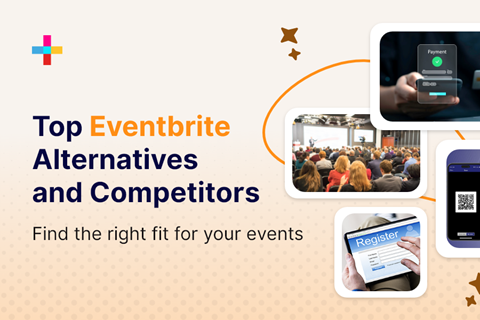

Event data is extremely important for event professionals as it helps you plan, execute, and measure the success of your events. Additionally, it provides insights into your attendees, sponsors, and partners. However, with the vast amount of attendee information stored and transmitted during an event, a significant breach could lead to numerous negative consequences.
According to the report by IBM, data breaches cost companies an average of $3.86 million in 2020. It took an average of 280 days (almost 9 months) to identify and resolve these breaches. In 2024, nearly 30,578,031,872 known records have been breached so far in 8,839 publicly disclosed incidents. Breach notification costs rose to $370k in 2023, a 19.4% increase over 2022, and cyberattacks using stolen or compromised credentials increased by 71%.
Data breaches leave businesses vulnerable to reputation damage, loss of trust, and legal consequences. Therefore, event planners must prioritize and implement a robust cybersecurity plan.
The significance of cybersecurity cannot be overstated. Hackers are constantly searching for weak entry points to gain access to valuable and sensitive data. Events, due to their connections to multiple organizations, present attractive opportunities for hackers. This is particularly true considering the growing reliance on digital technologies such as artificial intelligence (AI) in the event industry.
Why Are Events and Event Data Vulnerable to Cyber-Attacks?
1. High-Value Event Data: Events are targeted because they collect and store personal information, including attendee details, financial data, intellectual property, and trade secrets. This wealth of personal data makes events an appealing target for cybercriminals seeking to steal identities or perpetrate fraudulent activities.
2. Digital Transformation and Emerging Technologies: Today, events and technology are closely intertwined, from registration and ticketing systems to mobile apps and all-in-one platforms. These expand the attack surface for cybercriminals. Each of these digital touchpoints represents a potential vulnerability that cybercriminals can exploit to gain unauthorized access to sensitive data and disrupt event operations. In 2018, a ticketing platform experienced a data breach through a compromised third-party customer support system, affecting approximately 40,000 UK customers and exposing their personal and payment card information. This incident highlights the interconnected nature of event systems and the importance of securing third-party integrations.
3. Limited Security Awareness: Event professionals often prioritize the logistical aspects of planning and execution, inadvertently overlooking robust cybersecurity measures. Venues primarily focus on providing a seamless experience rather than ensuring data protection. This can leave event data vulnerable to attacks, as hackers may exploit weak network infrastructure, unsecured access points, or outdated software systems.
In 2017, a WannaCry ransomware attack disrupted the UK's National Health Service (NHS), impacting numerous hospitals and healthcare facilities. The attack spread through interconnected networks, exploiting vulnerabilities in outdated software. This incident highlights the potential risks that exist when interconnected systems within an event infrastructure are not adequately secured.
4. Third-Party Risks: All event formats, especially in-person events, involve collaboration with various vendors, sponsors, and partners, each introducing their own systems and potential security gaps. These external connections can provide an entry point for attackers to infiltrate event systems and access sensitive data. Phishing emails, fake event registration websites, or even physical infiltration can be utilized to exploit human vulnerabilities and gain unauthorized access to event data.
Types of Risks Associated with Event Data Security
1. Data Breaches: Unauthorized access to event databases or attendee records can result in significant data breaches. This includes theft of personal information, financial data, and proprietary business information. Data breaches not only lead to financial losses but also damage the reputation and trust of both the event organizer and attendees.
2. Ransomware Attacks: Events may be targeted by ransomware attacks where hackers encrypt critical event data and demand a ransom for its release. Such attacks can disrupt event operations, cause financial losses, and tarnish the event's reputation.
3. Phishing and Social Engineering: Cybercriminals may employ phishing emails, fraudulent websites, or social engineering techniques to deceive event attendees, sponsors, or staff into divulging sensitive information or clicking on malicious links. These attacks can lead to data theft, unauthorized access, or the spreading of malware.
4. Denial-of-Service (DoS) Attacks: Hackers can launch DoS attacks to overwhelm event websites or registration systems, rendering them unavailable to attendees or disrupting event operations. These attacks can cause significant inconvenience, financial losses, and damage to the event's image.
8 Best Practices for Data Privacy in Events
1. Create a Data Security Policy
Draft a clear data security policy that explains how you collect, store, process, and share event data. Specify who is responsible for data security, define roles and permissions for different users, and establish procedures for reporting and responding to security incidents. You can use existing frameworks like ISO 27001 as a reference or seek advice from experts or online tools to help you create your policy.
A data security policy also ensures compliance with relevant laws and regulations such as the General Data Protection Regulation (GDPR) or the California Consumer Privacy Act (CCPA). It also demonstrates your brand's commitment to protecting data and privacy to stakeholders and sponsors.
2. Choose a Secure Event Management Platform
Event management software has become a crucial part of in-person events today. It not only helps you plan and manage your events but also aids in data collection and storage. However, not all event management platforms offer the same level of data protection. Start by checking and going beyond the hype into the reputation and track record of the platform provider. Look for reviews, testimonials, certifications, awards, or accreditations that indicate their commitment to data security. When selecting a platform, ensure it offers the following data security features:
3. Educate and Train Your Staff
Your staff is your first line of defense against cyberattacks. The 2022 Data Breach Investigations Report by Verizon found that 82% of studied breaches were tied to the human element, meaning people were a primary driver in security breaches.
Therefore, it's essential to educate and train them on how to handle event data securely.
4. Know the Difference Between Personal and Sensitive Data
In accordance with the EU's Data Protection regulations, sensitive attendee data may be utilized for discriminatory purposes and require extra security measures. However, this category of data is frequently conflated with personal data, which primarily includes names, addresses, birth dates, and phone numbers. Sensitive data pertains to an attendee's racial background, political opinions, religious affiliations, or mental and physical health. It is imperative to adhere to the Data Protection Act from the moment this data is acquired until its deletion.
5. Monitor and Update Your Data Security
Data security requires ongoing attention. Avoid falling into the trap of overconfidence. Regularly conduct audits or assessments of your data security status and compliance.
6. Have a Data Deletion or Minimization Plan
A fundamental rule of data privacy and security is to only retain information necessary for organizers and nothing more. Also called data minimization, it protects against unnecessary harm in case of a security breach. When you have used an attendee’s data for reporting and marketing, it is crucial to delete it. Your organization needs clear data retention policies and schedules outlining what data to keep, delete, or retain for a specific duration before deletion.
7. Avoid Storing Information Physically
As a best practice, it's advisable to refrain from storing any crucial event information in physical formats such as printed documents or USB drives. Physical storage poses a significant risk as it can easily fall into unauthorized hands through theft, loss, or accidental misplacement. By keeping data exclusively in digital formats, you can implement robust security measures such as encryption and access controls to mitigate these risks.
8. Seek Support from External Sources
In case of data privacy in events, there is no room for complacency. Being overly optimistic and assuming nothing can go wrong with your current event leaves you vulnerable to learning from mistakes only after they happen. A single security incident can severely impact your organization, which makes hiring experts or consultants to evaluate and improve your data security imperative.
Additionally, join industry associations or networks that provide resources and guidance on data security. This proactive approach will enhance your understanding and enable you to support your event security.
4 Mistakes to Avoid When Enforcing Event Data Security
Organizers often neglect certain crucial aspects of event data security. Recognizing these mistakes will help you prevent serious data breaches.
1. Lack of Transparency in Data Collection
Your attendees should know what kind of data you're collecting and why. If their data is mishandled, it could tarnish your brand's reputation. Therefore, it’s important to clearly outline what data is being collected, along with its purpose, on your event registration forms. Additionally, keep your attendees informed about their rights to foster greater trust.
2. Unrestricted Access to Private Events
If you don't control access to private events, anyone could crash the party and spread misinformation. This could lead to attendees losing trust and deciding to bail on your event. To avoid this, invest in robust event management software with strong privacy controls and registration rules. Other solutions include requiring attendees to use access codes or links to enter the event and maintaining a list of pre-approved attendees.
3. Neglecting Cybersecurity Infrastructure
Many organizers overlook the need to evaluate and strengthen their cybersecurity infrastructure while deploying video surveillance systems like CCTV. This oversight can result in significant consequences, as these systems are connected to your company's network. Even if you install top-of-the-line surveillance cameras, neglecting to update firewalls or patch can lead to vulnerabilities in your network, leaving your entire system susceptible to cyberattacks. Before installing video surveillance systems, it's crucial to conduct a thorough cybersecurity assessment of your existing infrastructure.
4. Partnering with Untrustworthy Third Parties
When collaborating with third parties for data processing, ensure they have a solid reputation for security. Verify if the company shares information about its practices, such as encryption and firewall usage. While a trustworthy company may not disclose all details, it should still communicate some safeguards it employs to protect data. If a third-party refuses to share any information, it's best to avoid partnering with them.
Data security is crucial in event management. It helps protect your reputation, trust, and compliance while enhancing your event's performance and value. Understanding these best practices and common pitfalls can help you protect your event data from cyber threats, ensuring a memorable experience for everyone involved.
Explore more about event data security at https://bit.ly/498PjBV

Every event organizer knows the sinking feeling of watching a well-planned budget unravel. That initial estimate of $400,000 suddenly balloons to $540,000 due to unexpected fees and overlooked expenses.

Eventbrite is a common name in the event management space, but if you’re here, chances are it isn’t checking all your boxes. Like many professionals, you may be looking for Eventbrite alternatives or exploring...

Networking events remain the backbone of professional growth, whether you're building a business, recruiting talent, generating leads, or seeking strategic partnerships.